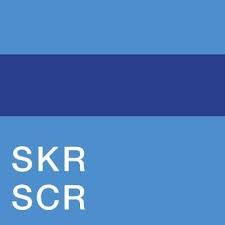Conserving cultural heritage requires the participation of all of society so as to maximise the benefits our patrimony has to offer us. The conservation of our material cultural heritage needs and offers rational and scientific methodologies for this care and is a process of dialogue. E.C.C.O. understands the importance of promoting this dialogue with communities since they are often the first to raise the alarm about loss of heritage. Heritage restoration has been considered one of the traditional professions of heritage, together with Archaeologists, Museologists, Historians, Architects, etc. Over the last 40 years, Conservation-Restoration has become a highly specialized and discrete profession with very specific competences requiring a discrete education and training in order to promote high standards of quality in the interventions of our heritage. E.C.C.O. promotes the dialogue of the transdisciplinary purpose in conservation, restoration as well as art technology with all concerned disciplines and advocates on behalf of the Cultural Heritage to value and safeguard their historic, artistic or scientific dimension for Society. E.C.C.O. defends this professional profile within the framework of formal studies to achieve greater protection of cultural heritage and seeks to cooperate with other profession in the cultural heritage sector. E.C.C.O. shares the vision of lifelong learning, non-formal-sociocultural learning, to achieve a greater awareness in the valorisation and safeguarding of cultural heritage. The aim of E.C.C.O. has always been to support the care and preservation of cultural heritage for society through high standards in the practice of conservation-restoration. This informs all our activities and relationships, our educational and legislative endeavours. The Professional Guidelines and a Code of Ethics, which E.C.C.O. has developed, are the standard in the European conservation- restoration world. E.C.C.O.s expertise in the field of skills, training and knowledge transfer in the traditional and emerging heritage E.C.C.O.‘s professional Guidelines describe the types of knowledge and skills that are required of the conservator-restorer and that these must be delivered to Masters Degree level or its equivalent. The Professional Guidelines have three parts: the Profession, the Code of Ethics and the Education. These documents direct principled interventions of conservation and restoration to cultural heritage. This is upheld by all our members and we work very closely with the European Network of Educators in Conservation- Restoration to achieve this. The ‘’Competences for Access to the Profession of Conservation-Restoration” was published in 2010, maps the conservation-restoration process and describes the level of knowledge and skill that is required to practice at a professional level. It is based on existing definitions of Conservation-Restoration and the recognition that the Conservator-Restorer has a public responsibility to contribute to the preservation of cultural property and dissemination of related knowledge for the benefit of present and future generations. The strategic plan builds on the strength and experience E.C.C.O. has gained over the last 25 years and which helps to point the way forward for members and partners. Based on the working reality of the professional and the different situations experienced by our member organizations are reflected. Their selection is based on shared needs, similar situations and on chal¬lenges our members face today. It highlights the fundamental role of the profession as a facilitator in the engagement of society with its cultural heritage. This change of emphasis has come about as the result of a number of European projects that E.C.C.O. has led or been an active participant and the formulation of European Recommendations for Conservation-Restoration of Cultural Heritage in conjunction with ICCROM and ENCoRE (E.C.C.O. 2009) and through active dialogue with its members and other stakeholders in the field. Good practices The Professional Guidelines and Code of Ethics of E.C.C.O. are the standards in the European conservation-restoration community and were basis for document of Pavia to professional engagement in the care and safeguarding of European cultural heritage http://www.encore-edu.org/Pavia.html?tabindex=1&tabid=188 The use of E.C.C.O.’s Guidelines are found as reference to written statements, declarations, legal papers and code of conducts in the field of conservation and restoration. The study of the competences in Conservation-Restoration is implemented up to now in three universities into their learning outcomes and ETCS system for Bachelor’s and Master’s degree: Bern in Switzerland, Vienna in Austria and Oslo in Norway. And it’s used for describing job specifications, required competences in procurement procedures for conservation-restoration projects and in explaining the complex activity of Conservation-Restoration to politicians and civil society. E.C.C.O. was a main Coordinator together with ICCROM of the “Survey of the legal and professional responsibilities of the Conservator-Restorers as regard the other parties involved in the preservation and conservation of cultural heritage” APEL. E.C.C.O. contributed in CON.B.E.FOR: A Comparative Study of European Academic Education in the Conservation-Restoration of Cultural Heriage. At the 25th anniversary of E.C.C.O. in June 2016, the Declaration of Berlin was adopted by the participants of the Presidents Meeting. In considering the FARO Convention, EU Commission’s “Integrated approach to Cultural Heritage for Europe” and the Namur Declaration, it calls to recognise Conservation-Restoration as a strategic resource for society in the care and valorisation of our common Cultural Heritage; to kindly request that the CoE and other relevant bodies consider developing a charter or a recommendation on the Conservation-Restoration of Cultural Heritage.

